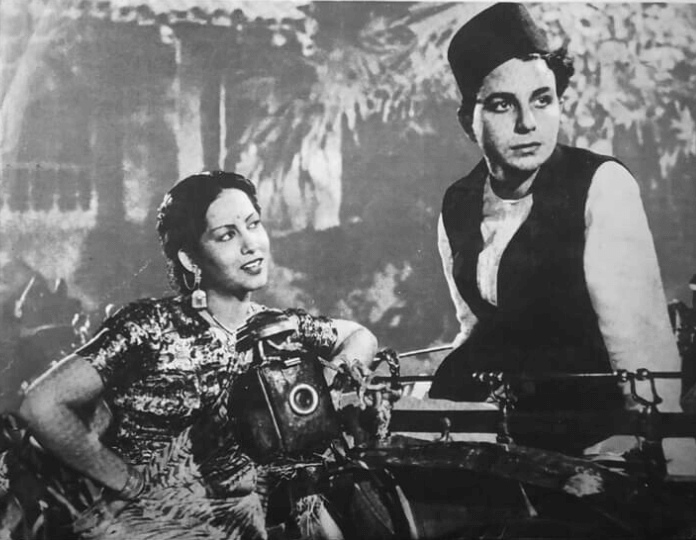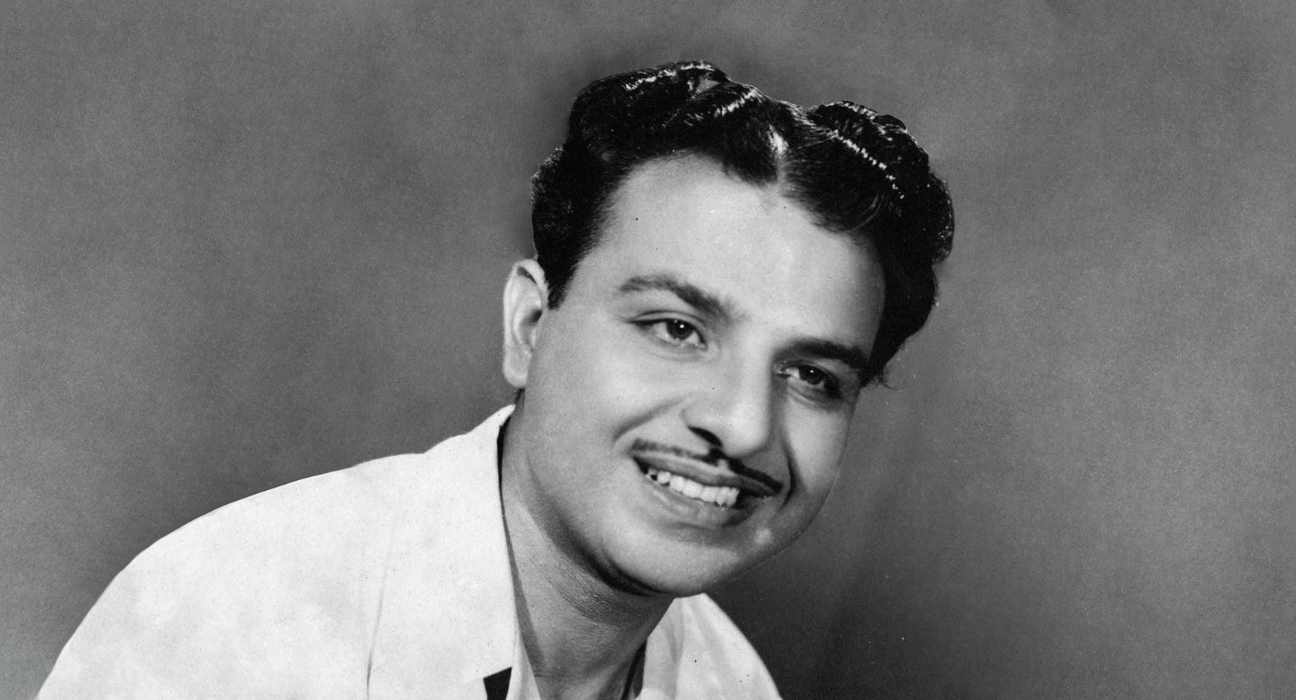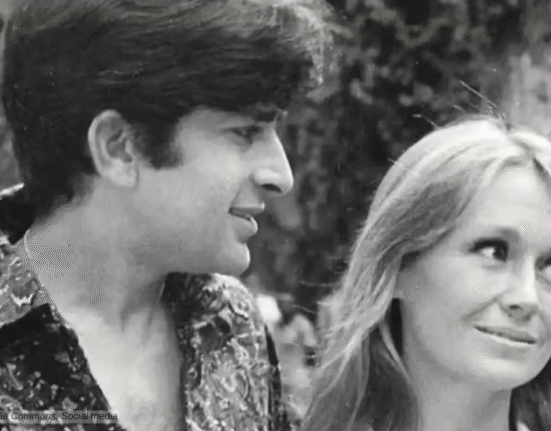Karan Dewan was one of the early superstars of Hindi films who ruled the hearts of movie lovers with films like “Rattan,” “Zeenat” Lahore,” “Dahej,” “Pardes,” “Bahar,” “Teen Batti Char Raasta,” and many more.
Early Life and Career
Karan Dewan, born Dewan Karan Chopra on November 6, 1917, in Gujranwala, now in Pakistan, was a prominent figure in Hindi cinema with a career spanning from 1941 to 1979. During his college days in Lahore, he developed an interest in writing and journalism, which led to him working as an editor of the Urdu film magazine “Jagat Laxmi.” This early exposure to the film industry paved the way for his eventual foray into acting. His elder brother, Jaimani Dewan, was a film producer and director.
Dewan’s acting debut came with the Punjabi film “Puran Bhagat” in 1939, produced by Raisaheb Sukhlal Karnani and directed by R. L. Shorey. He connected with the industry through Tarachand Barjatya, a distributor in Lahore. In 1941 he acted in Shankar Mehta’s Punjabi film Mera Maahi (1941) with Manorama and Ragini. He also made his singing debut with Mera Maahi (1941), under the music direction of “Shyam Sundar.” B.R. Chopra, a journalist friend, introduced him to Devika Rani in Bombay. When initial efforts to secure roles failed, Karan taught Urdu pronunciation to actors.
In 1942 he played a supporting role in Phani Majumdar’s “Tamanna (1942),” starring Jairaj and Suraiya. He did another supporting role in “Shobha (1942),” starring Shobhana Samarth, Shahu Modak and Sulochana Chatterjee. His first lead role came in V. C. Desai’s “Adab Arz (1943)” with Nalini Jaywant, Mukesh and Dulari. In the film he sang a song “Hai Bahane Nit Nayi Takraar Ke,” under Gyan Dutt. He then acted in films like “School Master (1943),” and “Gaali (1944),” In 1944 he starred opposite Swarnalata in “Ghar Ki Shobha.”
Breakthrough

However, it was the 1944 film M. Sadiq’s “Rattan” opposite Swarnlata that catapulted him to stardom. Produced by his brother Jaimini Dewan, Rattan was not only a massive hit but also showcased Dewan’s singing talents. The film’s music by Naushad was a rage in those time. Its songs like “Ankhiyan Mila Ke,” “O Jaane Wale Balamwa,” were espacially popular. He also sang famous numbers like “Jab Tum Hi Chale Pardes” and “Sawan Ke Baadalon.”
Some of his early notable songs include “Hai Bahane Nit Nayi Takraar Ke (Adab Arz),” “Kuch Bhool Gayi (School Master),” “Mera Khuli Hawa Mein Bangla (School Master),” “Aah Jale Dilon Ne Li Shole Uthe Jahaan Mein (Gaali),” and “Ab Aa Ja Aa Ja Dil Na Lage (Gaali).”
After the success of Rattan, Karan starred in many successful films, with about twenty of his films celebrating silver jubilee, which led to his title as the first “jubilee star” of Hindi cinema.In 1945 he worked in two films with Noor Jehan. The first was S Khalil’s Bhaijaan (1945) and second was Syed Shaukat Hussain Rizvi’s Zeenat (1945). Both the films were big hits and established him as the top hero. He also worked in Do Dil (1947), Shakti (1948), and Duniya (1948), with Suraiya.
The Super Star Karan Dewan
Some of his notable films include Phir Bhi Apna Hai (1946) with Nalini Jaywant, Piya Ghar Aaja (1947) with Meena Kumari, Mitti Ke Khilone (1948) with Nigar Sultana, Mehndi (1947), Gaon (1947), Krishna Sudama (1947), Lahore (1949), and many more.
One of his most memorable role came in Lahore (1949) opposite Nargis. Karan portrayed a Partition-affected lover in this poignant drama by M.L. Anand. The film’s sensitive depiction of the aftermath of Partition earned critical acclaim. He starred with Prithviraj Kapoor, Jayshree, Mumtaz Begum, Keshavrao Date and Lalita Pawar in Dahej (1950). As Suraj in V. Shantaram’s melodrama, Karan addressed the dowry system’s evils. His chemistry with Jayshree and the film’s social message resonated with audiences. He played Ashok opposite Vyjayanthimala in her Hindi debut Bahar (1951). Directed by M.V. Raman, its romantic narrative and S.D. Burman’s music made it a box-office success.
Karan played a lead in V. Shantaram’s comedy-drama Teen Batti Char Raasta (1953), on national integration. The film is one of a kind and tells the story of a man who married off his sons to girls from different parts of India. His performance alongside Sandhya, Nirupa Roy, Sheila Ramani, Shashikala, Smriti Biswas, and Meenakshi highlighted his versatility.


Later Work
He started experimenting with roles in the 1950s and has done many films as a second lead and charachter actor. Some of his notable films in the 1950s include Pardes (1950), Sabak (1950), Bhai Ka Pyar (1951), Ek Nazar (1951), Aag Ka Dariya (1953), Jalianwala Baag Ki Jyot (1953), Guzara (1954), Laadla (1954), Duniya Gol Hai (1955), Bahu (1955), Jashan (1955), Jalwa (1955), Sau Ka Note (1955), Musafirkhana (1955), Oonchi Haveli (1955), Chhoo Mantar (1956), Chandan (1958), Miss 1958 (1958), Taqdeer (1958) and many more.
Despite his success, the film industry is known for its ebbs and flows. By the 1960s, Dewan’s leading roles had dwindled, and he transitioned to character roles. He continued to act in films such as “Apna Ghar (1960),” “Shaheed (1965),” “Jeene Ki Raah (1969),” and “Nadaan’ (1971),” with his last credited film being “Atmaram” in 1979.
Personal Life
Transitioned to a casting agent for John Berry’s American series Maya (1966), reflecting a shift from acting as his career slowed.
Dewan married actress-singer Manju, who acted with him Rattan; together, they went on to have five daughters and two sons. Karan Dewan passed away on August 2, 1979, in Mumbai, leaving behind a rich legacy that continues to inspire actors and filmmakers alike.
Karan Dewan on IMDB














Leave feedback about this